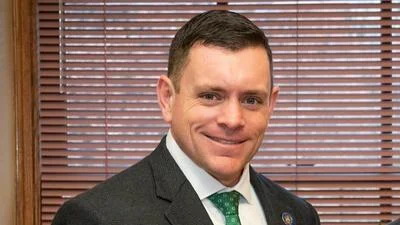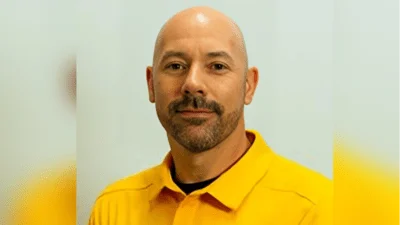Badger Institute recently issued the following announcement.
State unemployment benefits extended, despite a rebounding economy and businesses struggling to find workers amidst a severe labor shortage. Expanded federal child-tax credits — $3,600 per child — and larger Obamacare subsidies that even middle-class families with substantial incomes are eligible to receive.
“Free” two-year, community-college educations and universal preschool for 3- and 4-year-olds. The largest increase in the Supplemental Nutrition Assistance Program (food stamps) in the program’s history. Guaranteed income proposals under consideration in Milwaukee, Madison and Wausau (see story on guaranteed income on page 24) and dozens of other cities across the country.
It’s a mind-boggling blowout of federal, state and local benefits, new and expanded, in fulfillment of an ardent progressive’s wildest dreams of cradle-to-grave dependence on government.
How governments intend to pay for all of it remains murky at best. But one thing is crystal clear: The American Dream, based for centuries on rugged individualism — citizens bootstrapping their way to financial success — is getting plowed under by an all-grasping government nanny state.
“I’m alarmed (by ever-expanding social programs) in the sense that in a lot of ways, this is a regression to where we were 30 years ago,” says Noah Williams, an economics professor and director of the Center for Research on the Wisconsin Economy at the University of Wisconsin Madison.
“I don’t doubt the sincerity of the majority of people that advocate for these programs,” he says, “but experience has borne out, broadly speaking, that the welfare and social programs in general have not been effective and sometimes serve to make problems worse.”
He adds, “The consensus at that time, which has not been overturned, is that a lot of programs had adverse incentive effects, weren’t effective at delivering the services promised and ultimately produced a culture of dependency.”
Williams cites the expansion of child-tax credits, set to expire at the end of the year but which the Biden administration would like to make permanent. The new rules for the credits essentially turned them into refundable entitlement checks instead of offsets to household tax burdens, he says.
Williams also is concerned that the expanding welfare state is increasingly including families with higher in comes. Earning a certain level of income once meant the loss of some benefits. But the current push toward more universal programs that benefit people with relatively high incomes “eliminates those revenue cliffs and other adverse economic effects,” he says.
“You also get more buy-in from more people with a broader class of programs,” he adds. “The more people that rely on programs, the more people that want to make them permanent.”
Jeopardizing state’s economy
Kurt Bauer, president and chief executive officer of Wisconsin Manufacturers & Commerce, is troubled by the growth of government-subsidized disincentives to work.
“The people proposing things like universal income have no fundamental knowledge of how an economy works and have never met a payroll or had experience in private industry,” says Bauer, whose organization represents more than 3,800 companies from all sectors of the state’s economy. “We’re in a situation right now where everyone who wants to work can find not just family-supporting jobs but a career path with merit-based advancement. Now is not the time for proposals like universal income.”
This social welfare push comes as the growth of the working-age population in Wisconsin was a mere 0.4% in the past decade, according to Applied Population Lab data. Compounded by the COVID-19 pandemic and the support to remain unemployed, Wisconsin currently has more than 40,000 unfilled manufacturing positions — jobs that pay 35% above the state’s median income level.
“Wisconsin is known for its work ethic, but we’ve charted a decline in that ethic, which is sad,” Bauer says. “We’re frustrated because what we have is government that works against us on this with overly generous benefits, universal income proposals and generally incentivizing behaviors that aren’t good for the country in the long run. Not working removes people’s sense of pride. There’s dignity in work.”
The benefits baggage
Williams agrees with Bauer and several other economic researchers that failing to take part in the labor market is linked to drug abuse, crime, unstable families and other social pathologies.
When people are fully dependent upon government, they become complacent and ultimately don’t reach their full potential, according to Stan Veuger, a senior fellow at the American Enterprise Institute.
“We also run the risk of creating a culture of non-work — children who get used to entire communities that don’t work. In the long run, we’ll all be much poorer,” Veuger says.
War on Poverty failed
Unheeded in all of this is the fact that despite roughly $23 trillion in federal spending since the so-called War on Poverty was launched in 1965, the poverty rate has barely budged, floating around 10% to 11%.
Had the government simply divvied up that money and made direct payments to the country’s poorest people, poverty would have been eradicated many years ago, wrote Duquesne University economics professor Antony Davies and James R. Harrigan, managing director of the Center for the Philosophy of Freedom at the University of Arizona.
“We’ve spent trillions of dollars on eradicating poverty and haven’t gained much ground,” says E.J. Antoni, an economist at the Texas Public Policy Foundation. “We’ve created this bizarre Hydra of government programs that provide incentives not to work. If you can quit a job and enjoy almost the same standard of living, why wouldn’t you do that?” In 1965, total welfare costs per person were $803, adjusted for inflation.
Last year, with Medicaid and 13 other major federal programs, those costs were an adjusted $22,735 per person, according to researcher Robert S. Pfeiffer, author of “Poverty in the United States: Why It’s a Blight on the American Psyche. How We Can Wipe It Out.” That’s $90,939 in benefits for a family of four, well above the poverty level, he says.
Difficult to sustain
A more practical and immediate concern is whether this hyper-inflation of entitlements is fiscally sustainable.
The top 1% of taxpayers paid 28% of federal income taxes in 2020, according to the Tax Policy Center. The top 20% of taxpayers kicked in 78%, which jumped by a full 10% from the year before, because of a variety of pandemic-related tax breaks for lower-income families.
If more and more people opt out of work, the balance of payment for an ever-larger welfare state will eventually become crushing. The problem, to paraphrase the late British Prime Minister Margaret Thatcher, is that eventually you run out of other people’s money.
The twin pressures of social program expansions and tax increases can doom economies, Antoni says. “At some point, it just becomes catastrophic. The government needs to create hyper-inflation to pay for debt or keep raising taxes until the economy essentially shuts down because they’re so burdensome, it makes no sense to keep working.”
“Is it all sustainable? I don’t know,” Williams says. “But it’s hard to see how it would be.”
In search of solutions
Without economic growth, which at its very core means more people working, none of what Democrats — and a troubling number of Republicans — is doing from Washington, D.C. to Wausau makes any sense, says Michael Tanner, a senior fellow at the libertarian Cato Institute.
There must be a broad recognition that “Government isn’t the cure-all for all that ails us. In fact, many people are poor because of past government actions. You can fund programs like universal income with taxes, but that decreases economic growth. And you can’t redistribute wealth that doesn’t exist,” he says.
Rather than throwing money at poverty as we have for 56 years, Tanner says, the government should focus on breaking down the barriers to opportunity, including failing educational systems and the criminal justice system that penalize minority and low-income families, overregulation that stifles affordable housing and entrepreneurship and, increasingly, the perverse incentives in a booming social welfare system that flatten income and savings for families.
“These programs are designed for and are successful at making poverty a little less miserable, but that’s not sufficient,” Tanner says. “We want to get people out of poverty altogether and rise as far as their individual talents can take them.”
Williams is a proponent of earned income tax credits as a subsidy to wages for low-income adults — but only because people have to work in order to get them. “It’s not aimed at supporting people but rather at providing additional benefits for the working poor,” he says.
Easing housing and zoning regulations to make housing more plentiful and affordable would also make it easier for people to move to places that offer greater economic opportunity, he says.
These feel like insignificant steps in the face of trillion dollar social welfare hammer blows. The days of charities tending to the poor — something Antoni longs for — seem as long ago as the promise of Johnson’s Great Society.
But Antoni is a realist. The more people addicted to social programs, the greater the power accrued by the politicians and bureaucrats dedicated to providing them.
“This country is a big old battleship, and it takes a long time to turn it around,” he says. “Is it too late to do that? I don’t know. But one thing is for sure: We’re definitely headed in the wrong direction.”
Ken Wysocky of Whitefish Bay is a freelance journalist and editor. Permission to reprint is granted as long as the author and Badger Institute are properly cited.
Original source can be found here.






 Alerts Sign-up
Alerts Sign-up